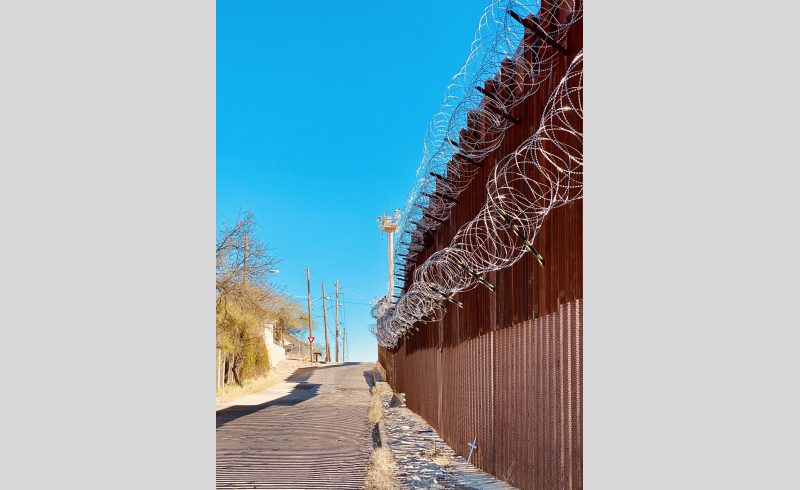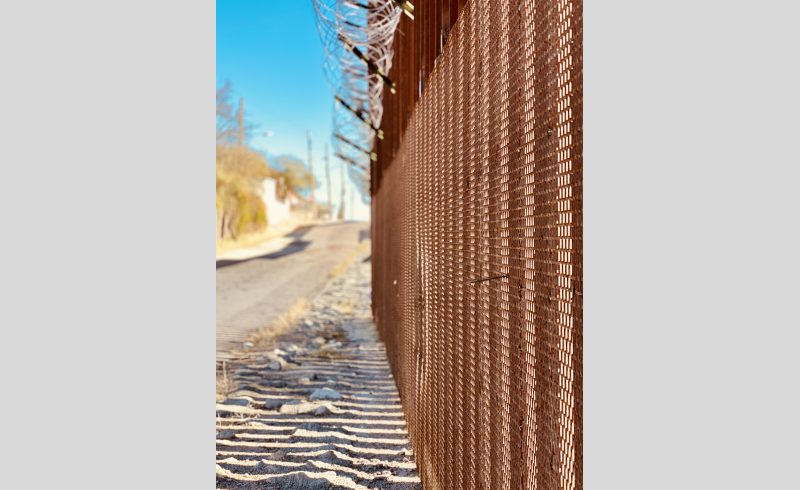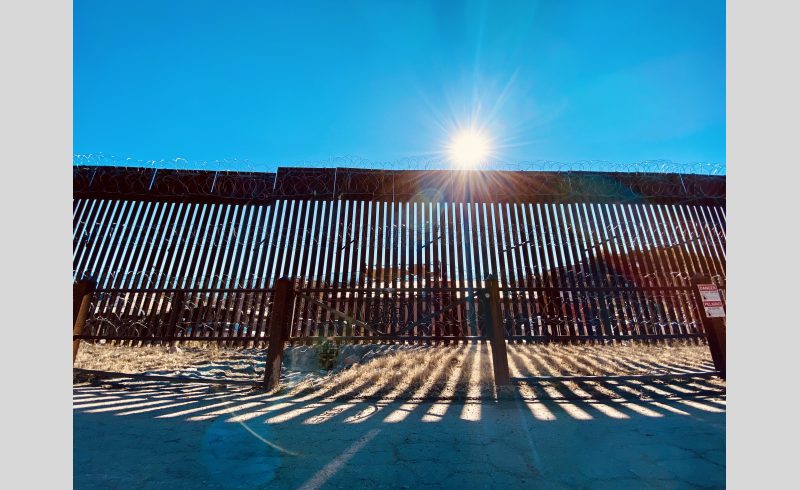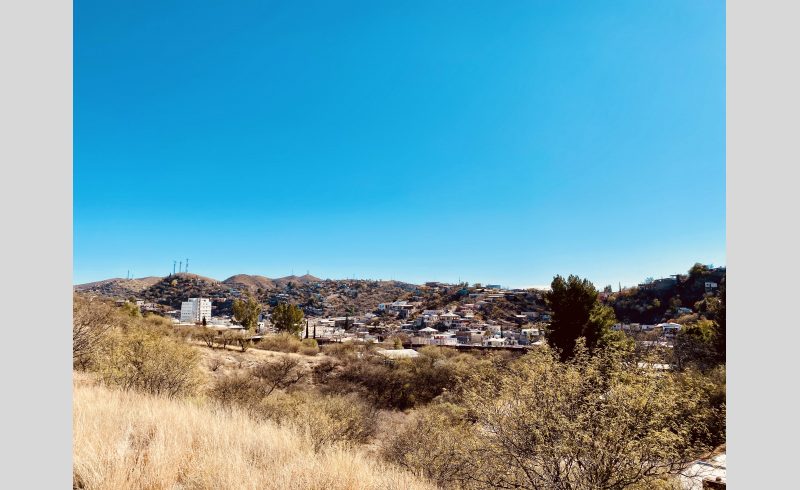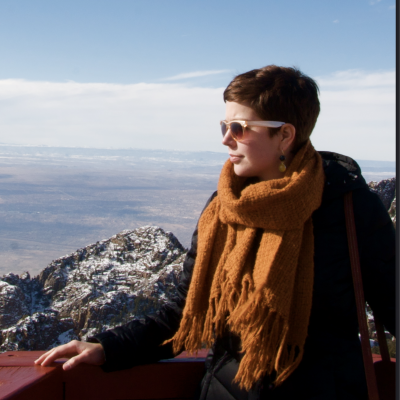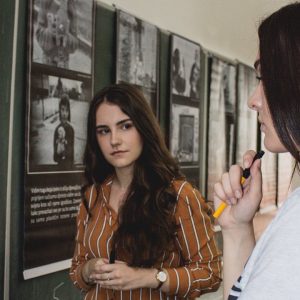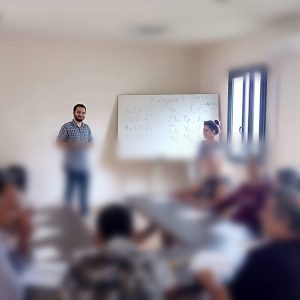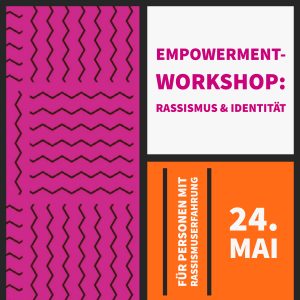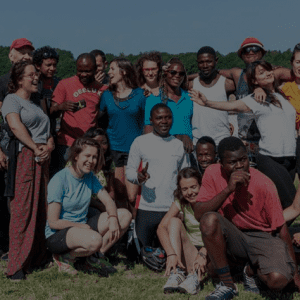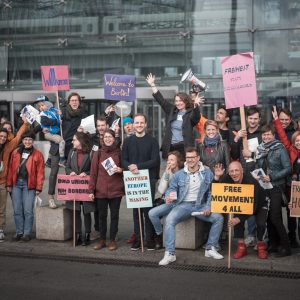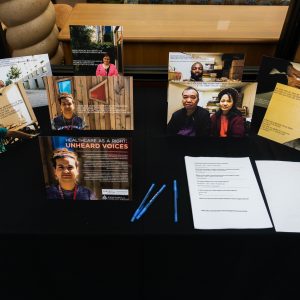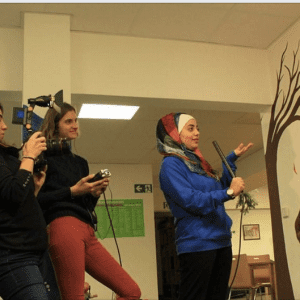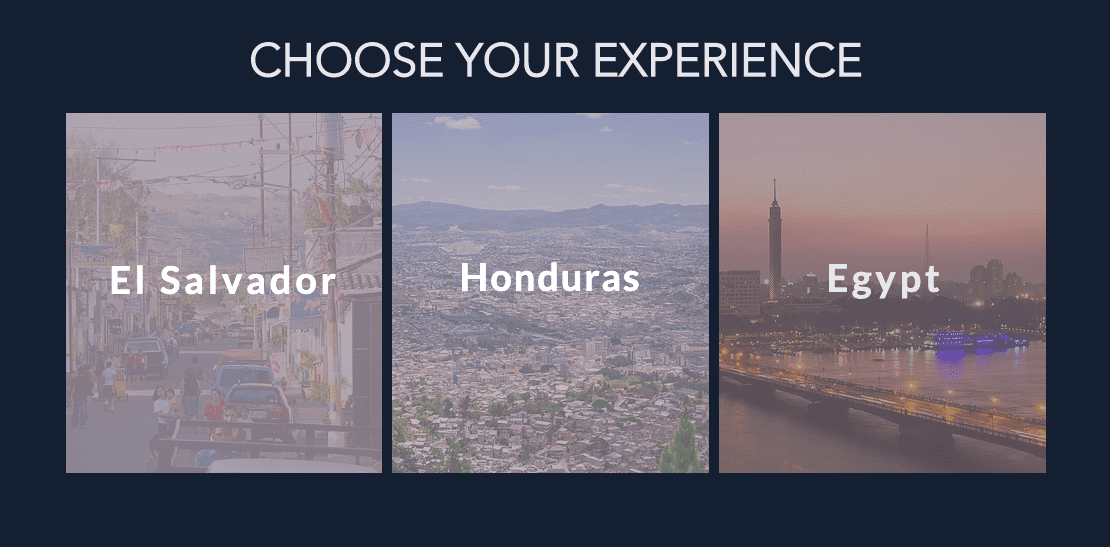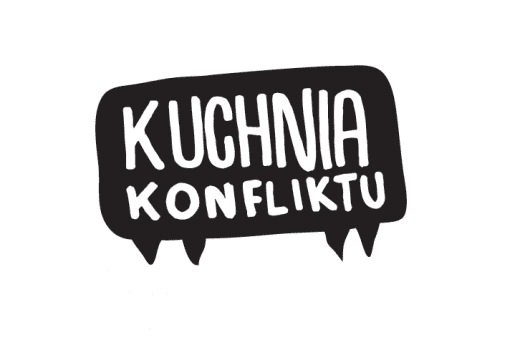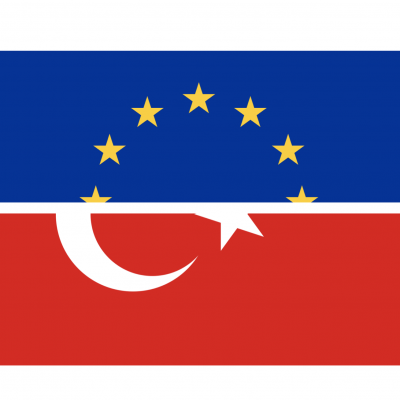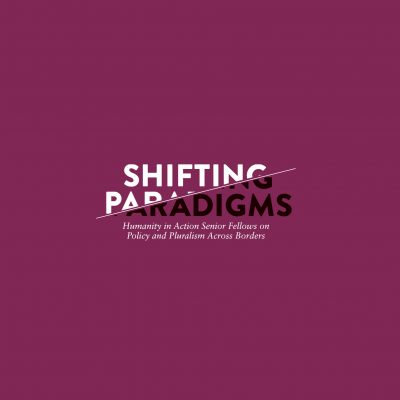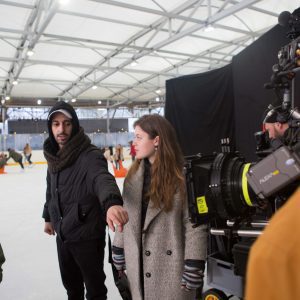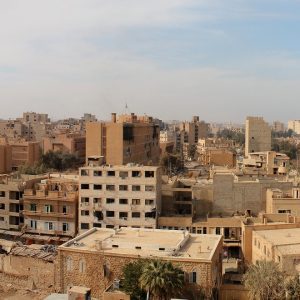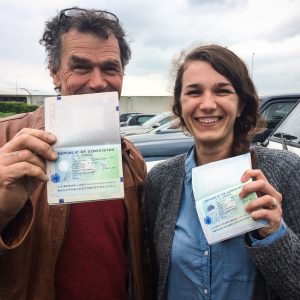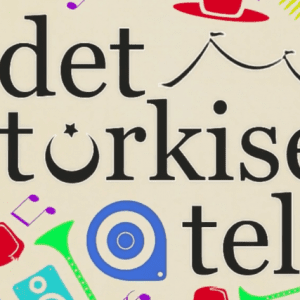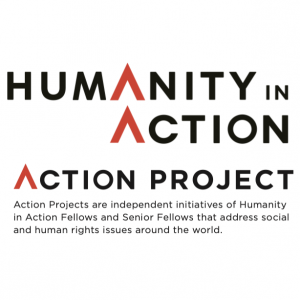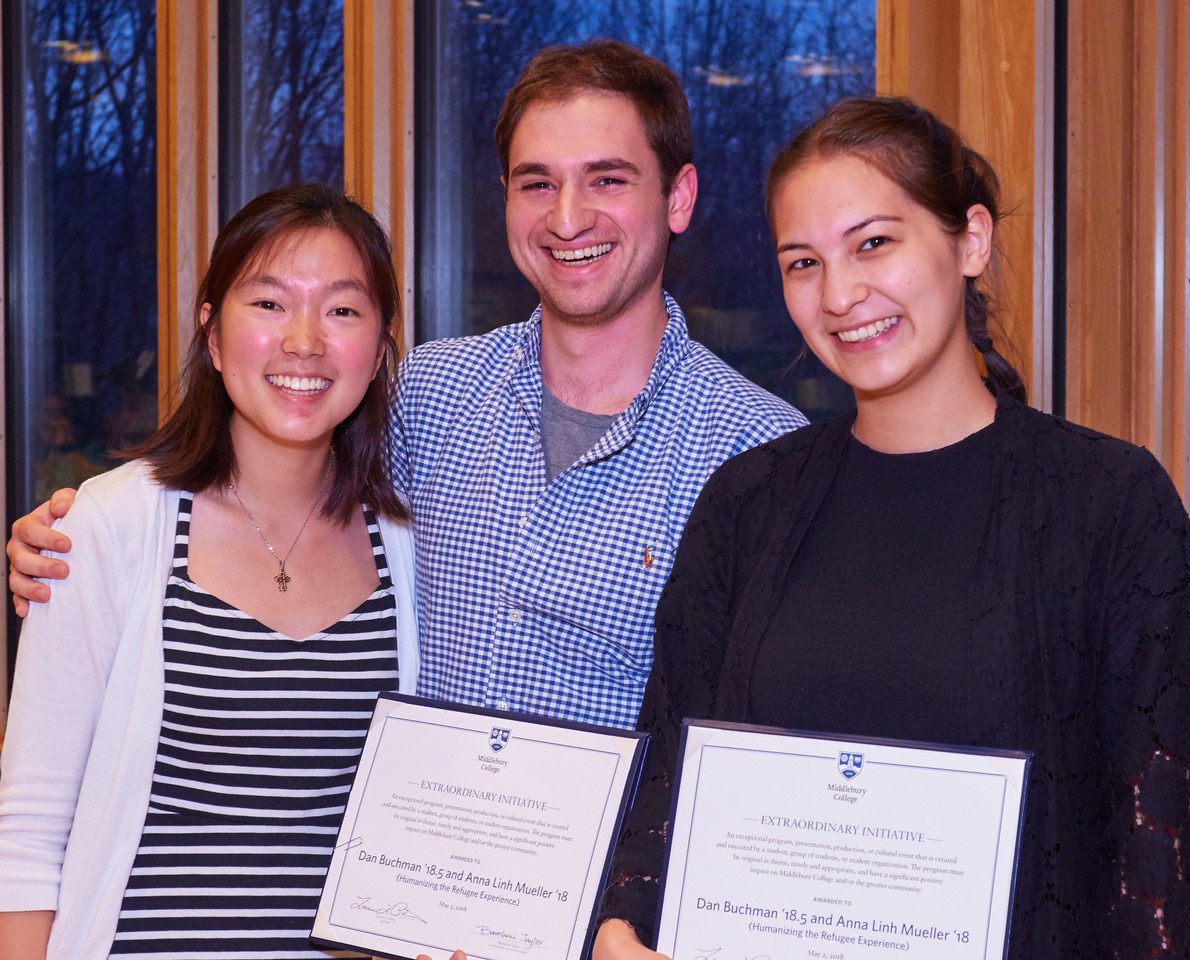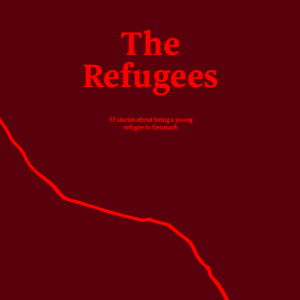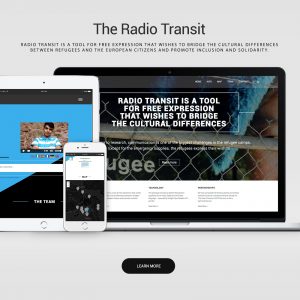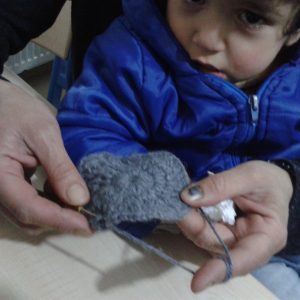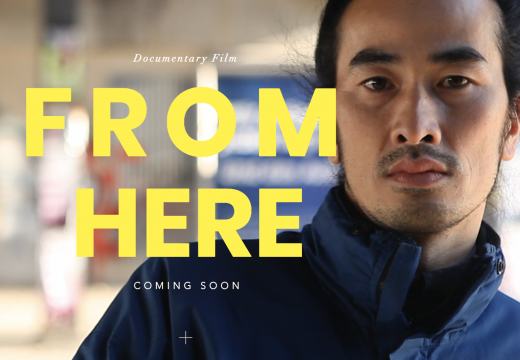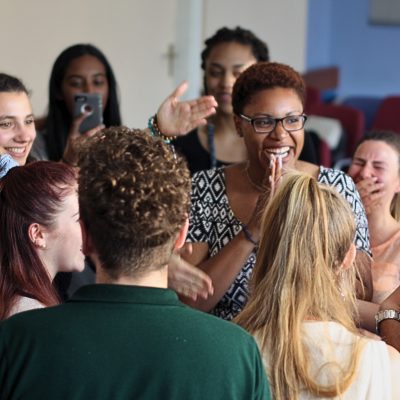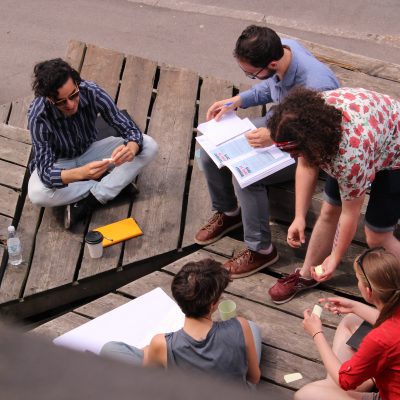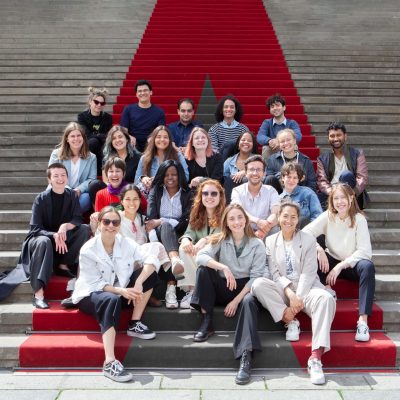Humanity in Action sprang forth from an abiding interest in the flight and rescue of Jews in Denmark in 1943. But our work did not stop there. Humanity in Action’s work is rooted deeply in the opportunities and challenges that societies have been facing as a result of migration.
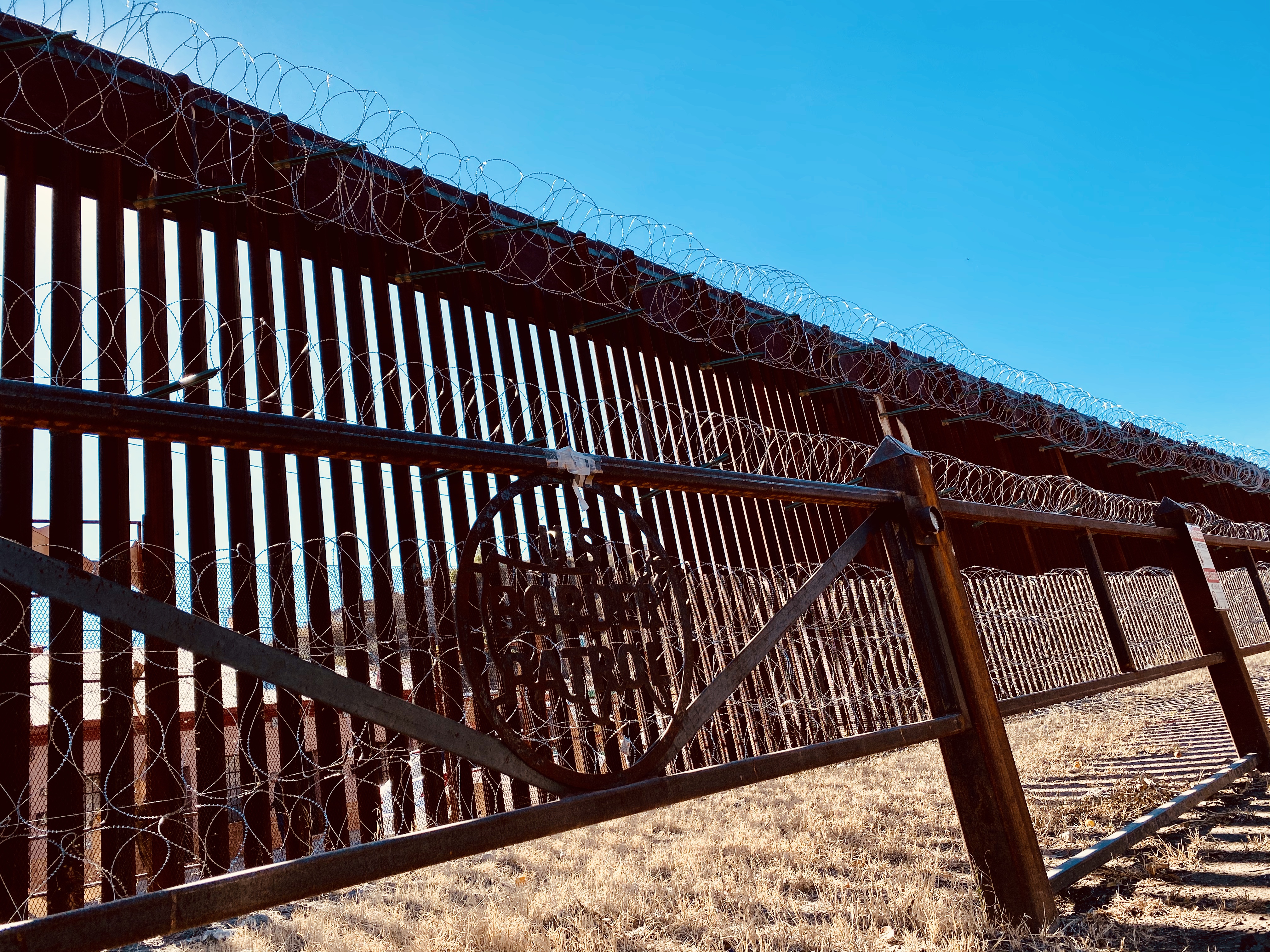
US-Mexico Border, (c) Bill de La Rosa
Supporting pluralism and the human rights of minorities are integral facets of our work. Scroll down for a selection of our community’s talks, projects and news focused on migration. We thank Senior Fellow Bill De La Rosa for taking the lead in creating this page and to all our Senior Fellows who are contributing to it.
Are you a Fellow or Senior Fellow wanting to weigh in on the issue? Please get in touch with us as we look for reflections on the issues in question.![]()
Reflections from the Border
Senior Fellow Bill De La Rosa was raised on both sides of the US-Mexico border in Nogales, two cities separated by a wall. In a deeply personal and touching account that bridges experiences from his childhood with present-day politics, in his piece “Reflections from the Border”, Bill alludes to an upbringing of crossing increasingly militarized borders.
“As a child in Sonora, I never understood why the two Nogaleses—known in Spanish as Ambos Nogales—split into two towns. After all, the people on both sides looked similar, spoke the same languages, and ate identical food. Why was there a wall between them? Why did only people from Mexico need papeles to enter the United States and not the other way around?”
Click here to read his article.

The Catch-22 of Migration Decision-Making in West Africa
In an analytical piece, Senior Fellow Jessamy Garver-Affeldt writes about the phenomena of “social death” and “suicide journeys” in the context of West African migration realities. In an environment where strong social imperatives to migrate collide with a repressive migration landscape and a lack of safe and legal pathways, Jessamy discusses some of the choices that young people in many places in West Africa face, and their social consequences.
“Is “social death” a useful or appropriate term to use to describe these situations in which people feel that they may be damned if they do (migrate), but that they are definitely damned if they don’t?”
Click here to read her article.
Coming of Age in the Age of Migration: From Knowledge to Action
In this article, Senior Fellow Tom Huddleston looks at migration as a field and discipline. What started as a niche specialization in a few distinct fields has evolved into an entire discipline where people working on migration now regularly refer to each other across disciplines and incorporate different theories and methodologies into their work. And yet, Tom argues, the migration sector has not made itself accessible and trustworthy, which needs to change.
“Most work still reflects and reproduces the Western/white experience of migration. Migration studies remain overly empirical and limited to Northern Europe and the ‘Anglo-Saxon’ world. As a result, the big names and organizations have only gotten bigger.”
Click here to read his article.
Reflections on the “Public Charge” Rule
As a legal aid attorney, Senior Fellow Pedro Spivakovsky-Gonzalez
“I want them to be able to see America as my grandparents and my father did, as a country that will give them freedom and a pathway to citizenship so they may contribute here. Beyond just considering the multiplier effects that investing in them could have on our children, grandchildren, and the life of our nation, we should consider the impact on our sense of who we are and what we represent.”
Click here to read his article.
Emerging Algorithms, Borders and Belonging
For this article, Senior Fellow Renata Barreto interviewed academics, coders, and policy experts while engaging with the current debates in algorithmic governance. She identifies three major trends at the intersection of technology and immigration: discrimination, surveillance, and resistance.
“I realized that the line on the left, where I stood, was composed mainly of people of color, slightly accented English, and mixed heritage families, who had spent a significant time abroad. Meanwhile, the line on the right was made up of white Americans, with more tempered travel experiences and no foreign relatives accompanying them on the trip, giving them a clean receipt.”
Click here to read her article.
Impressions from Senior Fellow initiatives that address migration
Poetry by Senior Fellow Antonio López
Antonio‘s nonfiction has been featured or is forthcoming in PEN/America, The Latino Book Review, and Insider Higher Education, and his poetry in BOAAT, Hayden’s Ferry Review, Adroit Journal, Puerto del Sol, Huizache, Tin House and elsewhere. He was runner up for the inaugural Palette Poetry Spotlight Award of 2019 and the recipient of the 2019 Katherine Bakeless Nelson Award in Poetry for the 2019 Bread Loaf Writers’ Conference. He received his Masters in Fine Arts (poetry) at Rutgers-Newark. As a 2018 Marshall Scholar, he is currently pursuing a Masters in Philosophy in Modern Middle Eastern Studies at the University of Oxford, where he is also poetry editor of the Oxford Review of Books. His debut collection, Gentefication, won the 2019 Four Way Books Levis Prize in Poetry, and is set to be published fall of 2021.
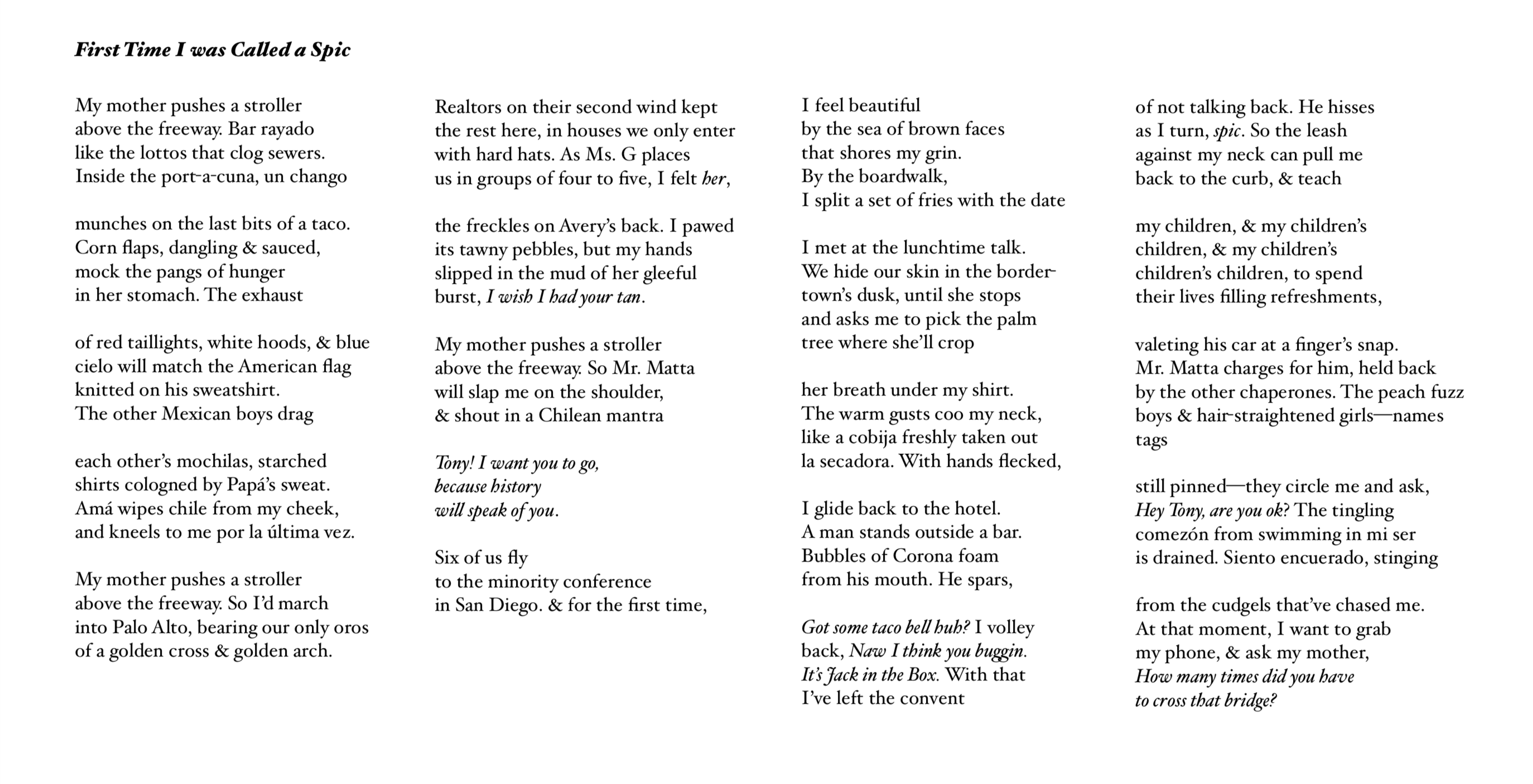
Alumni News related to Migration
Dive into the knowledge produced by our Senior Fellows:
Our Senior Fellows have published widely on migration-related issues. Visit to our Knowledge pages and find many more articles.
PERSPECTIVES Magazine
Through three issues of PERSPECTIVES, Humanity in Action invited its community to discuss the most complex challenges of democracy and pluralistic aspirations, largely in regard to migration and integration.
Discover some of the books we have published:
Learn about some of our publications addressing migration by clicking on the images below.
Flight and Migration – Societies in Transition
In 2016, we hosted a public event with the title “Migration as the New Normal“
In late 2017, Humanity in Action hosted a ten-day forum in Berlin, one of the political hotspots of the European refugee reception crises.
Read Senior Fellow Javier Muñoz’s reflection on the Forum in Berlin
26 Fellows and Senior Fellows from around the world came together as a community of human rights leaders to share their knowledge, skills, and expertise; reflect on their own positions and experiences in and for the inclusion of newcomers; and to network with civil society organizations, refugee initiatives, experts and activists.
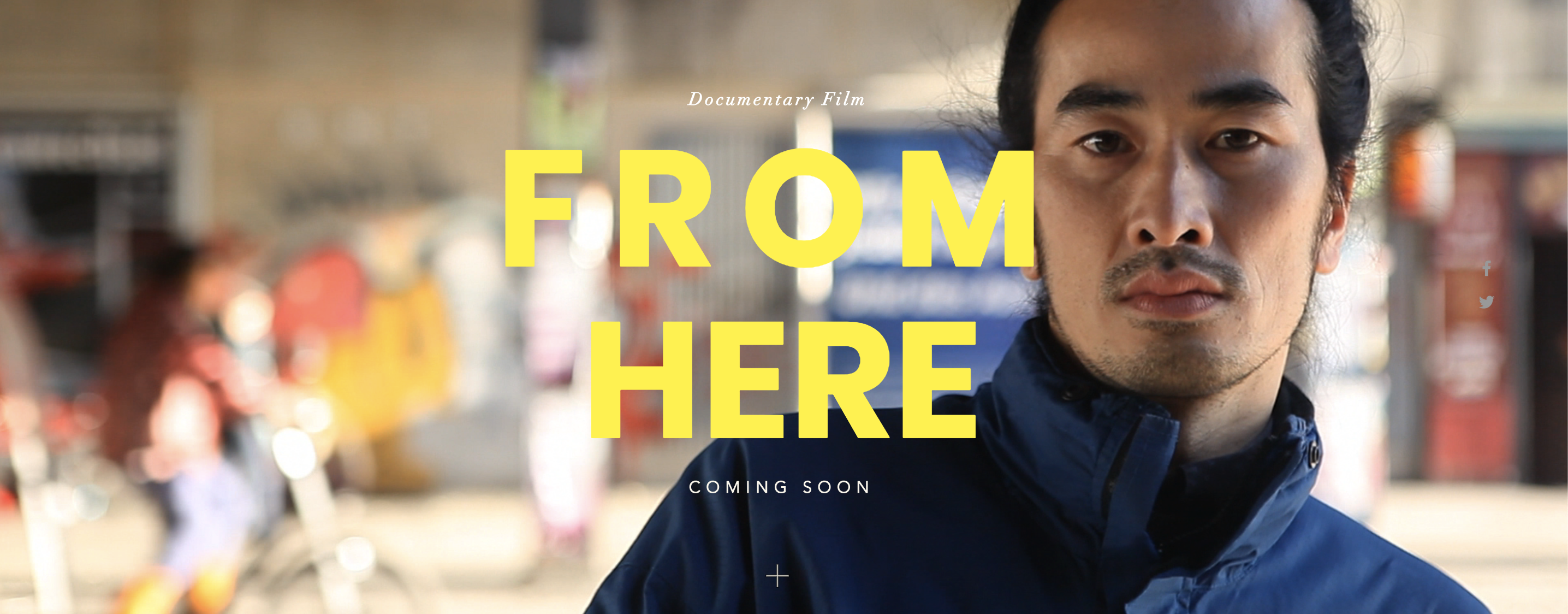
https://www.fromherefilm.com/
Dive into the knowledge produced by our Senior Fellows:
Suggested Readings by our Senior Fellows
- The Hidden Cost of Migrant Labor, Deepak Unnikrishnan
- The Distance Between Us by Reyna Grande
- The Devil’s Highway: A True Story by Luis Alberto Urrea
- La Fila India by Antonio Ortuño
- Dear America: Notes of an Undocumented Citizen by Jose Antonio Vargas
- Outcasts United by Warren St. John
- The Emigrants by E.G. Sebald
- The House on Mango Street by Sandra Cisneros
- No Friend But the Mountains by Behrouz Boochani
- Coyote Songs by Gabino Iglesias
- The Good Immigrant: 26 Writers Reflect on America edited by Nikesh Shukla and Chimene Suleyman
- Brick Lane by Monica Ali
- Maps for Lost Lovers by Nadeem Aslam
- Wedding by the Sea by Abdelkader Benali
- The Woman Warrior: Memoirs of a Girlhood Among Ghosts by Maxine Hong Kingston
- Americanah by Chimamanda Ngozi Adichie
- Lost Children Archive by Valeria Luiselli
- The Shadow Lines by Amitav Ghosh
- On Earth We’re Briefly Gorgeous by Ocean Vuong
- Dreams from My Father by Barack Obama
- Ghana Must Go by Taiye Selasi
- Homegoing by Yaa Gyasi
- The Line Becomes a River by Francisco Cantú
- How Does IT Feel to Be a Problem?: Being Young and Arab in America by Moustafa Bayoumi
- If They Come For Us by Fatimah Asghar
- The Year of the Runaways by Sunjeev Sahota
- Enrique’s Journey by Sonia Nazario
- The Beast: Riding the Rails and Dodging Narcos on the Migrant Trail by Óscar Martínes
- The Farming of Bones by Edwidge Danticat
- America for Americans by Erika Lee
- A Map Is Only One Story: Twenty Writers on Immigration, Family, and the Meaning Of Home edited by Nicole Chung and Mensah Demary
- Conditional Citizens by Laila Lalami
Academic Research
- An Infinity of Nations: How the Native New World Shaped Early North America (2013) by Michael Witgen
- Black Atlantic: Modernity and Double-Consciousness (1995) by Paul Gilroy
- Corridors of Migration: The Odyssey of Mexican Laborers, 1600-1933 (2008) by Rodolfo F. Acuña
- Nativism and Slavery: The Northern Know Nothings and the Politics of the 1850s (1992) by Tyler Anbinder
- Encountering Ellis Island: How European Immigrants Entered America (2009) by Ronald Bayor
- Bitter Fruit: The Story of the American Coup in Guatemala (2005) by Stephen Schlesinger and Stephen Kinzer
- The Birthright Lottery: Citizenship and Global Inequality (2009) by Ayelet Shachar
- White by Law: The Legal Construction of Race (2006) by Ian Haney López
- Impossible Subjects: Illegal Aliens and the Making of Modern America (2004) by Mae Ngai
- Line in the Sand: A History of the Western U.S.-Mexico Border (2012) by Rachel St. John
- The Point of No Return: Refugees, Rights, and Repatriation (2013) by Katy Long
- Refugees in an Age of Genocide: Global, National and Local Perspectives (1999) by Katherine Knox
- Displacement and Dispossession in the Modern Middle East (2010) by Dawn Chatty
- The Age of Migration: International Population Movements in the Modern World (2014) by Stephen Castles, Hein de Haas, and Mark J. Miller.
- Illegality, Inc.: Clandenstine Migration and the Business of Bordering Europe (2014) and No Go World: How Fear Is Redrawing Our Maps and Infecting Our Politics (2019) by Ruben Andersson
- Borderlands/La Frontera: The New Mestiza (1987) by Gloria E. Anzaldúa
- Entry Denied: Controlling Sexuality at the Border (2002) by Eithne Luibhéid
- Border Games: Policing the U.S.-Mexico Divide (2009) by Peter Andreas
- Walled States, Waning Sovereignty (2010) by Wendy Brown
- The Land of Open Graves (2015) by Jason De Léon
- Fresh Fruit, Broken Bodies: Migrant Farmworkers in the United States (2013) by Seth M. Holmes
- Lives in Limbo: Undocumented and Coming of Age in America (2015) by Roberto G. Gonzales
- Sacrificing Families: Navigating Laws, Labor, and Love Across Borders (2014) by Leisy Abrego
- Everyday Illegal: When Policies Undermine Immigrant Families (2015) by Joanna Dreby
- Deportation Nation: Outsiders in American History (2007) and Deportation Nation: Outsiders in American History (2012) by Daniel Kanstroom
- From Deportation to Prison: The Politics of Immigration Enforcement in Post/Civil Rights America (2016) by Patrisia Macías-Rojas
- The Deportation Regime: Sovereignty, Space, and the Freedom of Movement (2010) edited by Nicholas de Genova and Nathalie Peutz
- Migrating to Prison: America’s Obsession with Locking Up Immigrants (2019) by César Cuauhtémoc García Hernández
- Separated: Family and Community in the Aftermath of an Immigration Raid (2019) by William D. Lopez


